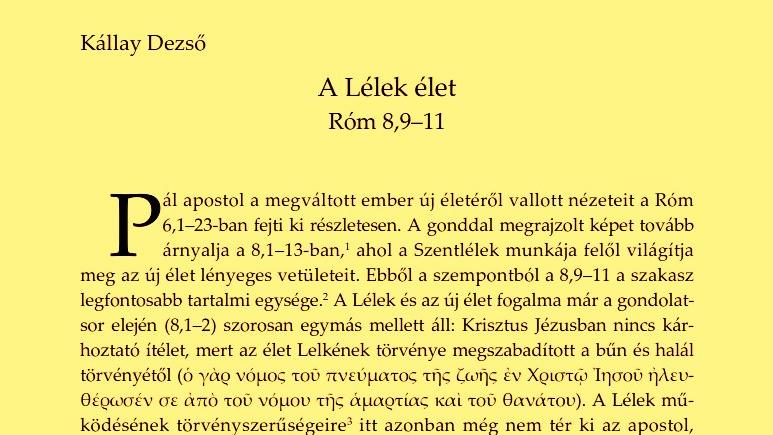Isten igazságosságáról – a Prédikátor könyvének feleletei fényében
Isten igazságosságának a kérdése mindig is foglalkoztatta Izrael bölcseit, de igazán élessé a kérdést a hellenizmus kihívása tette. Valóban van értelme a hitnek? Van haszna az istenfélelemnek, és valóban aszerint alakul kinek-kinek a földi élete, ahogyan Izrael Istenének akaratához viszonyul? A hellenizmus filozófiai irányzatai e kérdésekre nemmel feleltek. Ebben a tanulmányban a Prédikátor könyve sokat emlegetett „szkepszisét” és életigenlését kívánom a theodicea szemszögéből vizsgálódás alá venni.
